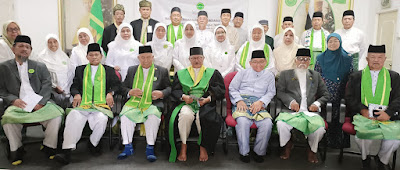As the Chairman of the National Development Advisory Board, I had the honor of presiding over the opening ceremonies of the 17th and 18th Badan Perhubungan Daerah-Daerah Annual Congress.
This annual event serves as a prelude to the party's upcoming general assembly later this month, during which crucial discussions and decisions for the future will transpire.
During my keynote address at the opening ceremony, I shed light on several critical issues facing Brunei.
Political Landscape and Challenges
The NDP, established as the sole legitimate political organization in Brunei Darussalam, has gained international recognition. Over the past 18 years, the party has played a pivotal role in navigating the complex political landscape dominated by the principles of Malay, Islam, Monarchy, and guided democracy. Despite being a symbol of steadfast democracy, challenges persist, including monitored freedom of speech and association, and regulated media freedom.
Acknowledging these obstacles, I emphasized the need for a collective spirit among party members. The NDP, I asserted, must remain the unwavering voice of the people, advocating for their rights and overcoming existing political barriers. While recognizing that the path to true democracy is challenging, unity and cooperation were underscored as essential elements to create a better future for the nation.
Economic Challenges
The economic challenges facing Brunei were a focal point of my address. The country is currently grappling with a decline in trade, a decrease in foreign investment, and a shrinking development budget. The statistics reveal a significant downturn, with Brunei's total trade value dropping by 53.9% in April 2023, primarily due to substantial declines in export and import values, particularly in the liquefied natural gas and petroleum sectors.
Foreign investment outflows in 2022 amounted to B$403 million, a worrisome trend that raises concerns about its impact on economic development, job creation, and technological advancement. The reduction in the development budget, from B$1.5 billion in 2012 to B$0.5 billion in 2023, adds to the economic challenges, hindering Brunei's ability to achieve its economic goals and potentially affecting essential services.
Challenges with the Elderly Population and NCDs
Preventive measures, investment in healthcare infrastructure, and support systems for the elderly were highlighted as essential strategies to address these challenges.
Graduate Unemployment
The concerning issue of graduate unemployment was also addressed. Graduates facing difficulties in finding employment were urged to explore entrepreneurship and innovation. Recommendations included implementing training programs aligned with industry needs, streamlining business licensing processes, and fostering a stronger relationship between educational institutions and industries.
Role of District Associations
Recognizing the importance of the District Association Congress, I emphasized its role in voicing the concerns and aspirations of the people at the grassroots level. Proposals discussed during the District Annual Congress were seen as vital contributions to be further deliberated in the party's General Congress.
In conclusion, I called upon attendees to earnestly contribute to the nation's future, ensuring prosperity and peace. The Annual District Congress for the years 2022 and 2023 was officially opened, with the hope for successful deliberations in the coming days.


